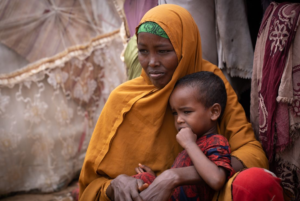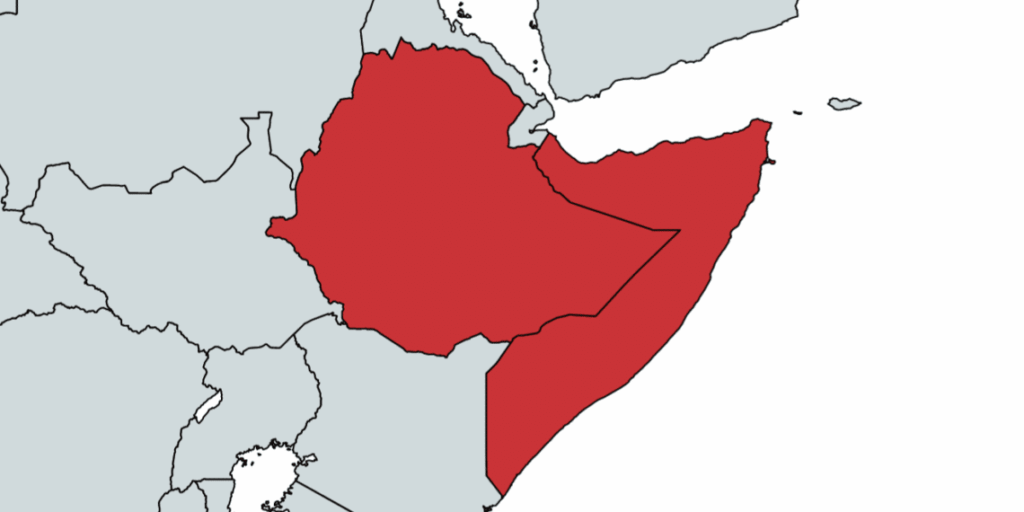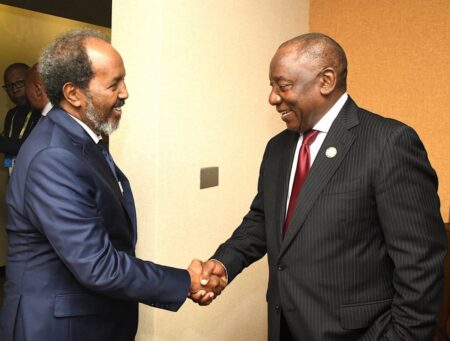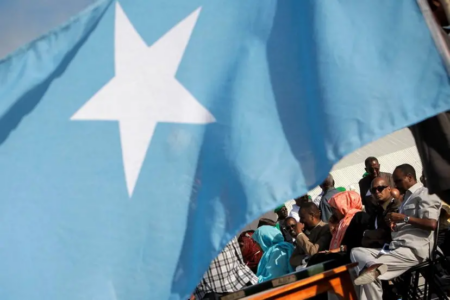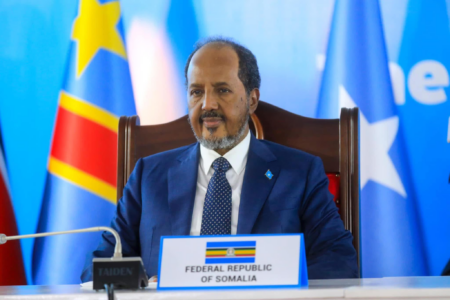Diplomatic tensions between Somalia and Ethiopia continue to escalate over a controversial port access agreement involving the self-declared Republic of Somaliland, threatening stability in the Horn of Africa and drawing in regional and international powers.
Deep Roots of Somalia and Ethiopia Tensions
The tensions between Somalia and Ethiopia have deep historical roots and have flared up multiple times over the past century.
Here’s a breakdown of key phases of the conflict, from early disputes to the most recent crisis:
Colonial Legacy and Early Clashes (1800s–1960s)
- Late 19th century–1930s: Ethiopia and European colonial powers (Britain and Italy) drew artificial borders that split Somali-inhabited territories across Ethiopia (Ogaden), British Somaliland, and Italian Somaliland.
- 1948–1954: Britain handed over the Somali-inhabited Ogaden region to Ethiopia, despite Somali protests.
- 1960: Somalia gained independence and adopted the ambition of “Greater Somalia”, seeking to unite all Somali regions—including those in Ethiopia, Kenya, and Djibouti.
Ogaden War (1977–1978)
- 1977: Somalia, under President Siad Barre, invaded Ethiopia’s Ogaden region in a bid to annex it.
- The conflict became a proxy Cold War battle, with the USSR and Cuba backing Ethiopia, and the U.S. initially supporting Somalia.
- Result: Ethiopia defeated Somalia after a brutal war, leading to a major blow to Somalia’s military and economy.
1990s–2000s: Collapse, Militias, and Interventions
- 1991: Somalia collapsed into civil war.
Ethiopia intervened multiple times to fight Islamist groups near its borders, especially Al-Ittihad Al-Islamiya and later al-Shabab. - 2006: Ethiopia, backed by the U.S., invaded southern Somalia to oust the Islamic Courts Union (ICU) and later clashed with al-Shabab insurgents.
2010s–Early 2020s: Quiet Tension, Strategic Rivalry
Somalia and Ethiopia diplomatic ties improved at times but mutual suspicion remained.
Ethiopia saw Somali instability as a national security threat; Somalia viewed Ethiopia’s interventions with distrust.
Ethiopia maintained a military presence in Somalia as part of the African Union Mission in Somalia (AMISOM), later AUSSOM.
The Controversial Ethiopia–Somaliland Deal
In January 2024, Ethiopia signed a memorandum of understanding (MoU) with Somaliland, granting it access to 20 kilometers of coastline along the Gulf of Aden.
In return, Ethiopia hinted at recognizing Somaliland as an independent state — a move Somalia strongly condemned as a violation of its territorial integrity and sovereignty.
Somalia considers Somaliland part of its territory and views the agreement as a land grab that could embolden secessionist movements.
In retaliation, Mogadishu expelled Ethiopia’s ambassador, ordered the closure of Ethiopian consulates in Somaliland and Puntland, and recalled its own ambassador from Addis Ababa.
Turkish Mediation Can’t Solve the Problem
In an effort to ease tensions, Turkish President Recep Tayyip Erdoğan hosted Somali President Hassan Sheikh Mohamud in Ankara on Friday, with discussions centered on counterterrorism, bilateral ties, and regional stability.
The closed-door meeting at the Presidential Complex highlighted the strategic depth of Ankara’s role as a regional mediator.
Türkiye has been facilitating backchannel negotiations since February 2024, yet little progress has been made in resolving the dispute.

International Reactions and Strategic Interests
Ethiopia’s Justification: Economic Necessity
Ethiopian Prime Minister Abiy Ahmed has stood firm on the agreement, arguing that sea access is crucial for Ethiopia’s economic future.
On July 3, 2025, he reiterated this stance publicly, despite growing opposition.
Somalia’s Diplomatic Campaign
Somalia launched a global diplomatic campaign against the deal, seeking intervention from the United Nations and support from strategic allies.
Somali officials emphasized that Ethiopia’s actions not only breach international law but also threaten regional peace.
Egypt Aligns with Somalia
The dispute took on a broader geopolitical dimension when Egyptian President Abdel Fattah el-Sisi met with President Mohamud earlier this month.
Egypt pledged military cooperation with Somalia and support for Red Sea maritime security, further complicating the regional balance of power.
Ankara Declaration: A Fragile Thaw?
In December 2024, under Turkish mediation, Somalia and Ethiopia signed the Ankara Declaration, agreeing to restore diplomatic ties and begin technical negotiations over Ethiopia’s access to Somali ports — under Somalia’s full sovereignty.
By January 2025, both countries had reinstated their ambassadors and resumed security coordination, particularly in the African Union Support and Stabilization Mission in Somalia (AUSSOM).
However, despite these diplomatic overtures, no concrete resolution has been reached regarding the original Ethiopia–Somaliland deal.
Future rounds of negotiation remain unscheduled, and both sides remain deeply entrenched.
Recent Updates on Somalia and Ethiopia Tensions
| Key Issue | Current Status |
|---|---|
| Ethiopia–Somaliland MoU | Still in effect, but not internationally recognized |
| Somalia and Ethiopia Relations | Diplomatically restored, but fragile |
| Port Access Talks | Ongoing technical discussions with no final agreement |
| International Involvement | Egypt and Turkey heavily engaged, UN response pending |
Somalia and Ethiopia Tensions Create A Complex Regional Chessboard
The dispute is more than a bilateral issue between Somalia and Ethiopia — it reflects the shifting strategic alliances in the Horn of Africa.
Control over port access, recognition of Somaliland, and foreign military cooperation are all shaping a complex regional chessboard.
As Somalia defends its sovereignty, Ethiopia seeks economic lifelines, and powers like Turkey and Egypt vie for influence, the next steps will be crucial for the future of regional peace, trade, and security.


